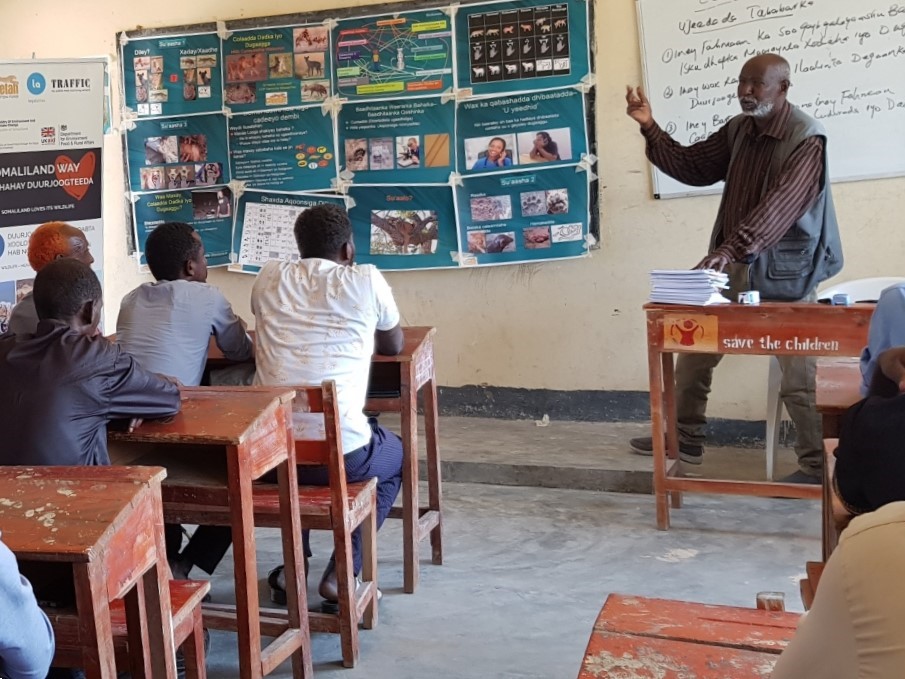Engaging with communities for cheetah conservation

FFA training session, Awdal Region, Somaliland. Credit - Cheetah Conservation Fund.
Addressing human-wildlife conflict in Somaliland
A large number of Somaliland’s wild cheetahs live on community lands where the cats are threatened by human-wildlife conflict. Predation is a significant threat to livestock and thus to the livelihoods of farmers and herders. Conflict with predators also contributes to tolerance of poaching and trafficking. Reducing the level of conflict is thus critical to addressing IWT and ensuring protection of the cheetah population in the Horn of Africa, which was listed as endangered by the International Union for Conservation of Nature in 2023.
During project year 2023-24, the Cheetah Conservation Fund (CCF)-led project “Legal Intelligence and Community Governance for Cheetah Illicit Trade (LICIT II)”, responded to this need by preparing and delivering training to rural communities in Somaliland, through a programme called ‘Future Farmers of Africa’ (FFA). CCF started developing the FFA programme in Namibia 30 years ago to deal with similar issues. The training covers responses to human-wildlife conflict, livestock management techniques, and rangeland and conservancy related knowledge.
"The training demonstrates to communities that investing their time and energy in conservation activities can bring them direct benefits."
CCF conducted baseline social surveys in an area of Somaliland’s Awdal region, that has been selected for a pilot community conservancy being established as part of the LICIT II project. These surveys assessed specific training needs and informed adaptation of FFA training materials, which were then translated into the Somali language. The survey results were also used to select six community sites in the survey area to receive the initial round of training. Criteria for site selection included reported presence of cheetahs in the landscape and community involvement in related project activities on reducing IWT and resource governance. Community leaders and elders helped select 154 participants, of whom 29% were women. Although society in these rural communities remains largely male-dominated, surveys disclosed that there are a significant number of women who keep their own herds of livestock. A CCF training team including male and female trainers delivered the FFA programmes in two-day sessions that began with a knowledge assessment followed by lessons on cheetahs and other wildlife, human-wildlife conflict, and integrated management of livestock and predators.
Monitoring over the next year will track application and effectiveness of the training, and provide feedback for refinement of the FFA programme. The training also demonstrates to communities that investing their time and energy in conservation activities can bring them direct benefits. The FFA training will be expanded to additional communities within the conservancy area and integrated into a comprehensive approach to sustainable community governance of wildlife and other natural resources.
For more information on this IWT Challenge Fund Main project IWT113, led by Cheetah Conservation Fund, please click here.

 Back
Back